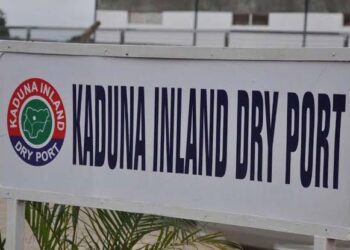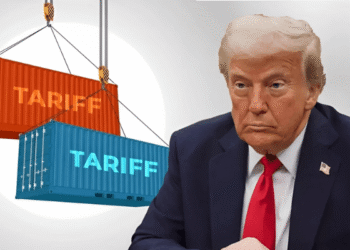Inland Container Nigeria Limited (ICNL), the operator of Kaduna Inland Dry Port (KIDP), has been ordered by the Nigerian Shipper’s Council (NSC) to bear 70% of the liability for any damaged export containers of black eye beans.
According to NSC, the order was issued in response to a complaint about two damaged export containers of Black Eye Beans being carried from Kaduna Inland Dry Port, KIDP by USBAB Multi Choice Ltd. (Exporter) to Jebel Ali port in Dubai, United Arab Emirates.
According to the council, USBAB blamed the damage on a delay purportedly caused by ICNL (Forwarding Agent) and MAERSK Nigeria Limited. The council noted that in a letter of complaint received through its Kaduna office, Usman Ahmad, Managing Director of USBAB Multi Choice Ltd, estimated the value of the damaged export at $104,111.75, with a total terminal and documentation cost of N1.65 million.Ahmad, who blamed the damage on ICNL and MAERSK’s delays, demanded the council’s involvement for a refund.
Ahmad also stated: “if the cargo was shipped on schedule, having paid all necessary charges to ICNL from the beginning of the transaction, the damage would have been avoided” .
Giving a detailed account of what happened from when the cargo was forwarded to ICNL to when it was finally shipped out of Nigeria, the complainant denied receiving any notification from either FPIS or ICNL regarding the recommendation that fumigation be repeated after the 21-day expiration period specified on the certificate of Quality, Fumigation, Good Packaging Materials, and Weight.
The exporter asked the Nigerian Shippers’ Council for help in recouping all of the money used for the beans and the export procedures, and they also submitted other claims that they had received from the importer in Dubai along with other supporting documentation. In order to settle the outstanding complaint amicably, the council said it arranged three separate meetings at the Kaduna Port Office with the complainant, KIDP/ICNL, Federal Produce Inspection Service (FPIS), Anglia International Services Ltd. (Pre-shipment Agent), and the Shippers’ Council’s complaints team from the head office.

All participants were greeted to the meeting by the meeting’s chairman and deputy director, Mr Paul Garnva, who also provided information on the office’s regulatory role over the dry port and its ability to protect shippers through economical, effective, and efficient service delivery.
He reported that more than 16,000 Twenty Equivalent Unit (TEU) import containers had been cleared since operations began, while more than fifty TEU of export containers had been handled. He went on to say that having a conversation in order to reach a just and peaceful conclusion was the main goal of the meeting.
However, given that it was the first intervention to take place at the Kaduna Port Office, the chief of the complaints unit, Mr. Daniel Orume, a deputy director, together with Mr. Hassan Aminu, a principal operations officer, and an assistant director (complaints), Mr. Danjuma Buba, said the intervention was vital.
He stated that, in accordance with the NSC’s Port Economic Regulation Order of 2015, the Complaints Unit was tasked with resolving conflicts between shipping service providers and consumers in the industry.
He emphasised that the council relied on documentation given by all parties in order to carry out our inquiry and make the required conclusions. He stated that the containers were put on hold by the Nigeria Drugs Law Enforcement Agency, or NDLEA, for nearly a month.
On ICNL’s counter-claim that they were told late by MAERSK Nigeria, the council demanded factual proof to confirm when both MAERSK and NDLEA informed the Terminal, as well as when they engaged NDLEA to release the containers
The council also asked FPIS, which is statutorily in charge of issuing certificates of quality, fumigation, good packaging materials, and weight, to clarify which agency in the export clearance chain is in charge of moisture because the certificate’s section for the commodity’s moisture content was left blank.
The Council also brought up other issues, like the length of time it took to attempt to amend the damaged cargo’s Bill of Lading, the question of who should provide advice on packaging for all export cargoes, and the inquiry made to the pre-shipment agent regarding the best kind of container for exporting agricultural goods.
Bottom Line
For the exporter, USBAB Multi Choice Ltd., the situation is a cautionary tale about the potential risks involved in international trade. The financial loss due to damaged goods and the additional costs incurred shows the need for exporters to ensure that all aspects of the logistics chain are managed effectively and that any potential risks are mitigated.
The dispute also highlights the need for better coordination between all stakeholders in the export process, including logistics providers, shipping companies, regulatory agencies, and exporters. Clear communication and timely actions are essential to prevent such costly incidents.

















